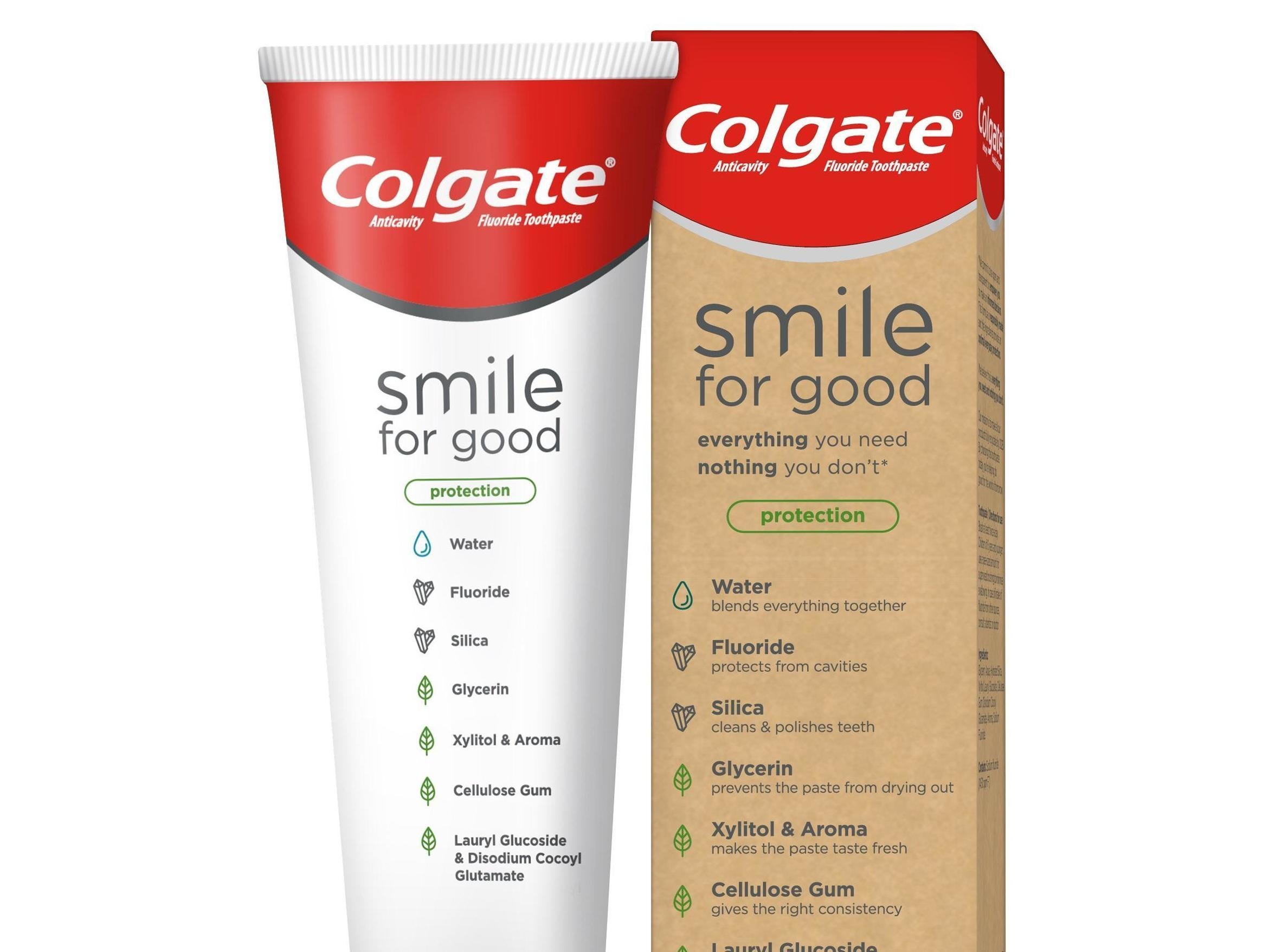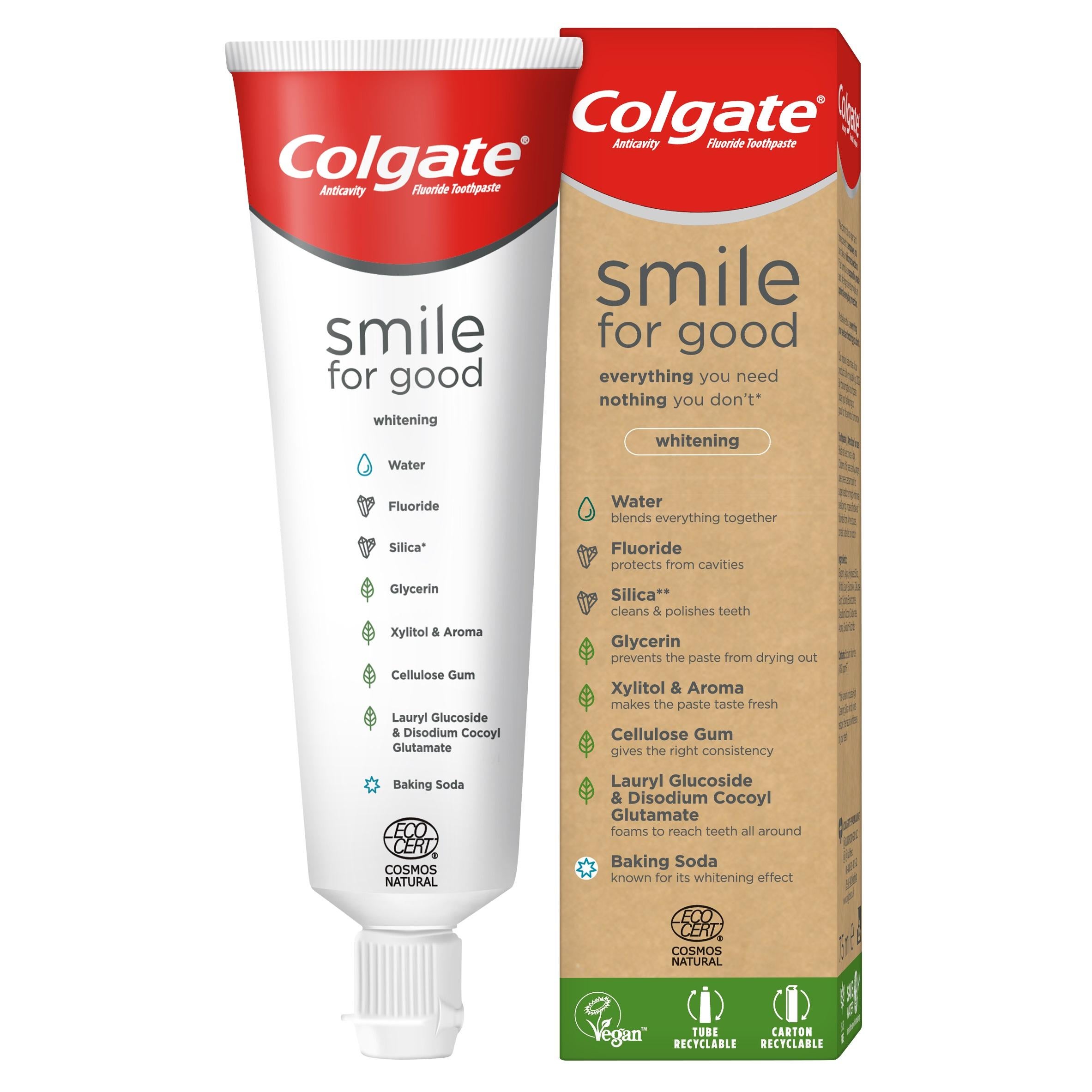The Independent's journalism is supported by our readers. When you purchase through links on our site, we may earn commission.
Colgate launches ‘first ever’ vegan-certified toothpaste but it costs £5 per tube
Packaging made using the same plastic as milk containers

Colgate has launched a new toothpaste which it claims is the first of its kind because it is vegan-certified and comes in a recyclable tube.
Up until now, toothpaste tubes have been difficult to recycle because they are made from a combination of plastic and aluminium.
Meanwhile, most toothpastes cannot be classified as vegan-friendly because they contain glycerin made from animal fat.
However, Colgate’s new Smile for Good toothpaste, comes in a tube made from high density polyethylene (HDPE) – the same plastic used for milk containers – and has been certified by the Vegan Society as it contains glycerin made from synthetic products or vegetables.
The brand previously thought HDPE was too rigid to create a squeezable toothpaste tube, but Colgate engineers have managed to figure out how to combine different grades and thicknesses of the material.

The new tube not only meets recycling standards, but helps product the product, holds up to the demands of high-speed production, and all remains “comfortably squeezable”.
With toothpaste alone accounting for an estimated 20 billion tubes annually around the world, Colgate has also promised to share its innovative technology with competitors to help ensure that all toothpastes meet third-party recycling requirements.
Noel Wallace, Colgate-Palmolive’s chief executive, said: “Colgate wants to make tubes a part of the circular economy by keeping this plastic productive and eliminating waste.
“If we can standardise recyclable tubes among all companies, we all win. We can align on these common standards for tubes and still compete with what’s inside them.”
In another industry first, Colgate has also ensured that each ingredient is clearly listed, and its purpose explained on the front of the pack – a move the brand says resulted from a growing number of consumers being confused by the role of various ingredients in products.
The tube states that fluoride helps protect teeth from cavities, while silica cleans and polishes, and glycerin prevents the paste from drying out.
There are currently two variations of the new toothpaste: Smile for Good Protection, and Smile for Good Whitening, which contains baking soda known for its whitening properties.
However, the new toothpaste, which is on sale in Waitrose and Boots, comes at a price.
Costing £5 for 75ml, Smile for Goods will set consumers back more than six times as much as the brand’s regular toothpaste, which costs just 80p.
Building on its ongoing efforts to help people make small, sustainable changes, including the launch of the Colgate Bamboo Charcoal Toothbrush and TerraCycle partnership, Colgate has pledged to use 100 per cent recyclable packaging across all its products by 2025.
The company isn’t alone in its efforts to become more environmentally-friendly.
Last year, Unilever, the consumer goods company that owns Dermalogica, Lynx and PG Tips, announced plans to halve its use of new plastic over the next five years.
Alan Jope, CEO of the firm, said it is important that society takes “radical action” with regards to combatting plastic waste.
“Plastic has its place, but that place is not in the environment,” Jope said.
“We can only eliminate plastic waste by acting fast and taking radical action at all points in the plastic cycle."
Join our commenting forum
Join thought-provoking conversations, follow other Independent readers and see their replies
Comments
Bookmark popover
Removed from bookmarks